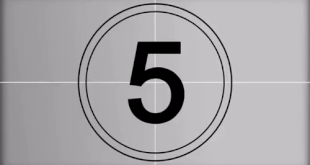Few things are more stress-inducing than job interviews. You know you’re fit for the job and want to make a good first impression, but what do you need to do to calm your mind and make sure your nerves don’t get in the way of a potential opportunity?
- Know the basics
Whether you’re going into a phone interview, a more casual informational session or have a marathon day where you’re meeting all the higher ups, study up. It will make you feel more at ease if you have that information in your back pocket.
Career coach and counselor Eileen Sharaga says, “The best way to mitigate anxiety is to be prepared, to understand do you really want this job? Are you qualified for this job? Is it a real stretch for you?”
- Practice, practice, practice
Whether it’s with a friend, family member, mentor, coach or even your pet, make sure that you don’t go in cold. Run a series of mock interviews so no question catches you off guard.
- Take a step back
As much as you might want the job, don’t let a sense of desperation creep into your interactions. If it becomes evident that something is actually a good fit, approach it with care. You don’t want to have to job hunt again in six months because you didn’t listen to your gut.
- Self-efficacy is everything
In psychology, self-efficacy is essentially a person’s belief that they are capable and can execute on and accomplish the goal in front of them. This internal drive can sometimes get lost in the job hunt shuffle, but it’s important to hold onto it.
- Don’t twist yourself into knots
If all goes well, it’s entirely possible that before the process is over you may have interviewed with multiple people at the company over three or four sessions. But if you’re having a hard time maintaining the same level of enthusiasm, listen to yourself and try to figure out why.
- Put your game face on
You’ve made it to the big show: in the office, wearing your interview suit, going to meet the big decision-makers. Even if you’re thrilled about the prospect of joining the company, it can be a long and tiring process.
Horsham-Brathwaite says to, “Utilize the moments of downtime to your benefit. That can be while you’re walking from one session to the next and taking some deep, meditative breaths that no one has to [know about to] help calm and center yourself.”
 Tempus Magazine By Students, For Students
Tempus Magazine By Students, For Students 



